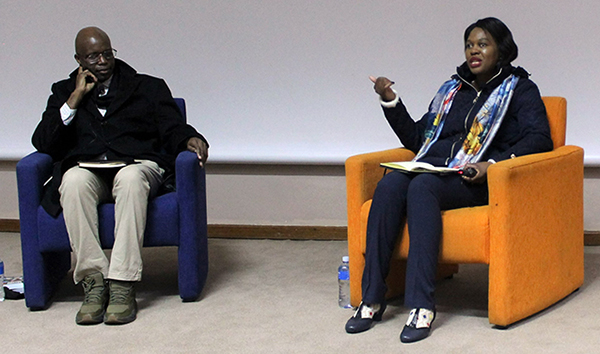University of South Africa hosts University Industry Partnerships panel discussion
Unisa’s Directorate of Innovation, Technology Transfer and Commercialisation (DITTC) recently hosted a University Industry Partnerships panel discussion at the Science Campus in Florida, Johannesburg.
Two prominent industry analysts, Dr Charity Mbileni-Morena, Managing Director of NM Envirotech Solutions (Pty) Ltd, and Simphiwe Duma, Managing Partner and Chief Technology Officer at Admond Capital, a venture-capital firm focusing on technology-driven enterprises, were the panellists. They both engaged with academics from the College of Science, Engineering and Technology (CSET) and the College of Agriculture and Environmental Sciences (CAES) to understand the industry’s needs.
“We are here to emphasise the importance of university-industry partnership in driving local, regional, national and continental socio-economic development. These partnerships provide a unique opportunity to bridge the gap between theoretical knowledge and practical application,” said Prof Les Labuschagne, Unisa’s Executive Director of the Department of Research, Innovation and Commercialisation.
He said that by bringing together the expertise of academia and industry resources, we can foster innovation, create economic opportunities and address pressing societal challenges.
Furthermore, Labuschagne stressed that when academia and industry work hand in hand, they can address complex issues such as poverty, water and food security, climate change, healthcare and sustainable development – but only with resources, knowledge and influence. They can co-create solutions that will have a lasting impact on communities, regions and nations.
“In this fast-paced, ever-evolving world, collaboration is no longer a luxury; it is a necessity,” Labuschagne said.
University-industry partnerships offer a wide range of benefits
University-industry partnerships are instrumental in commercialising research and innovation. Academic research often generates intellectual property (IP) that industries can further develop and commercialise.
Through technology transfer offices and licensing agreements, universities have transferred their intellectual property to industry partners, creating new products and services and start-ups. This innovation contributes to economic growth, lifelong learning and professional development.
Mbileni-Morena spoke on the policies and programmes in and outside universities that support university-industry collaborations and the available incentives. She shared lessons from her experiences in collaborating with universities.
Duma runs a venture-capital firm that invests money in start-ups or small businesses with high-growth potential. He spoke on the importance of having an effective and innovative entrepreneurial ecosystem in universities. “The relationship between university and industry is highly desired – innovation is required for economic growth,” he said.
Overall, university-industry partnerships create a mutually beneficial ecosystem. When academia and industry collaborate, they can drive positive change through innovation. These partnerships can address complex challenges, enhance research and development efforts, and create pathways for an economic and societal advancement plan.

